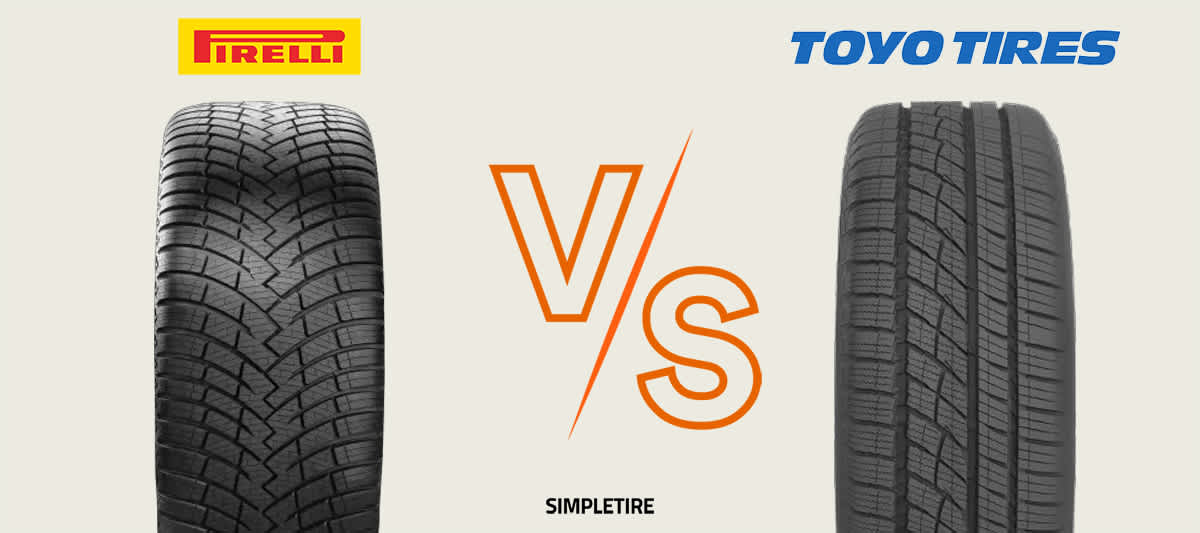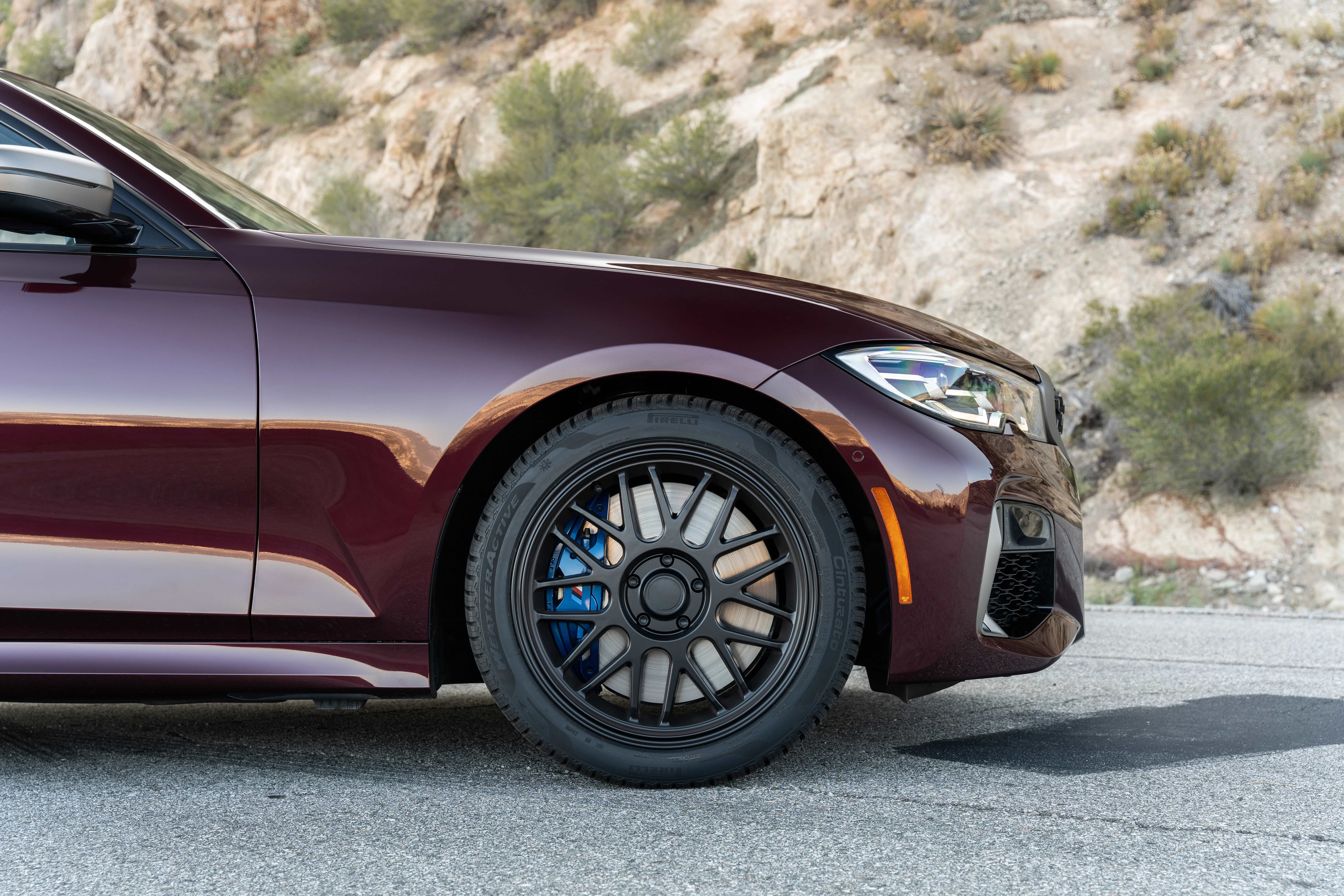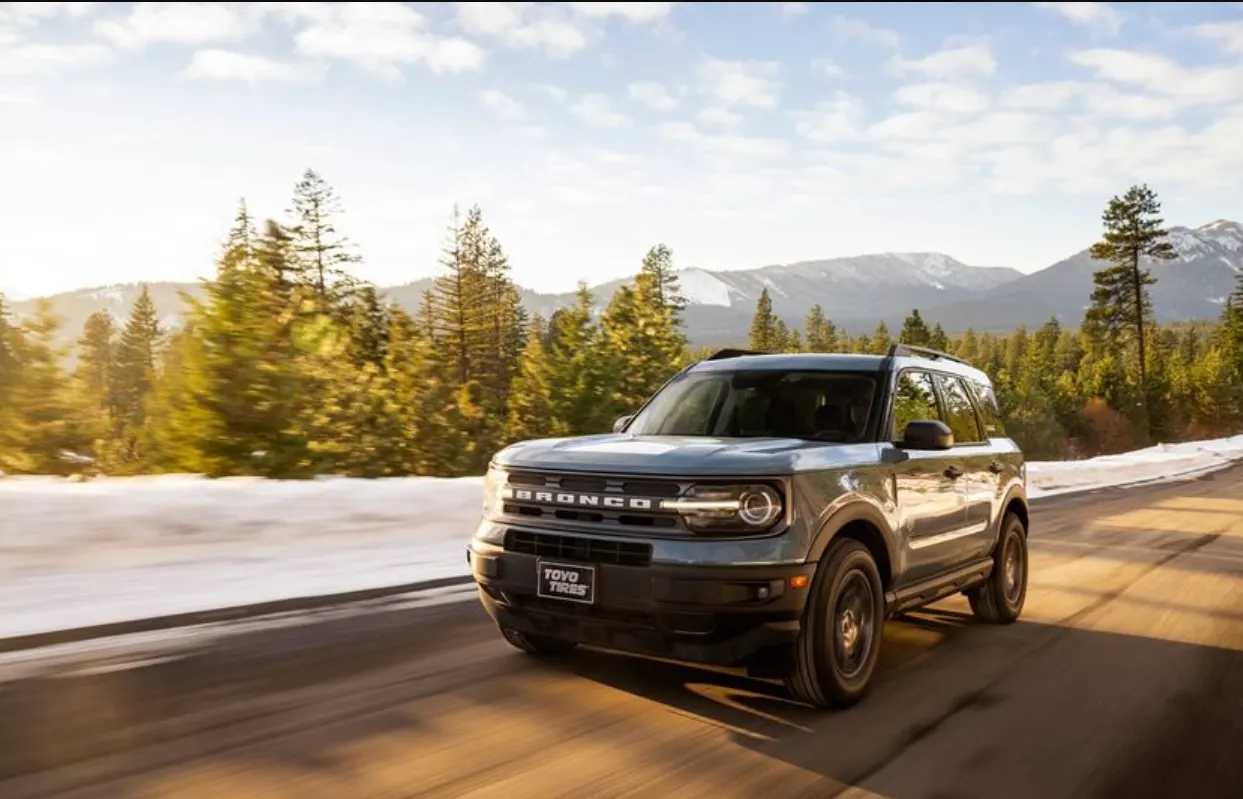Compare

Is there really much difference between all-season tires and all-weather tires? All-weather tires are part of a fairly new category in the tire world, taking over in situations where all-season tires often aren’t quite able to get the job done. If you’ve ever tried to get from A to B and back again when there are several inches of snow on the roads, you probably found out that (usually) most all-season tires are not going to be able to deliver the kind of traction, braking, and control you need. The tread features and design of all-weather tires are optimized for enhanced winter traction.
That means significant differences in tread compounds, more aggressive tread patterns, optimized sipe networks, and other features that all have the goal of more consistent traction in snow and slush. In other words, you can think of them as tires that fill a niche between all-season tires and winter tires, without the yearly process of having to remove winter tires and store them once temperatures get above 40-45 degrees F.
In the course of this product comparison, you’ll see us make reference to SimpleScore. If you’re not acquainted with it, SimpleScore is the proprietary system that the SimpleTire team has developed to give you a quick at-a-glance idea of a tire’s capabilities and performance. We look at the tire’s spec sheet, reviews, manufacturer information, and other data points, then take that and distill it down to a 1-10 score for the categories of traction, handling, and longevity, as well as an overall average SimpleScore for each tire. For the Pirelli Cinturato WeatherActive and Toyo Celsius II, the SimpleScore numbers break down this way:
Pirelli Cinturato WeatherActive
- Traction: 9.8
- Handling: 9.8
- Longevity: 9.2
- Overall average SimpleScore: 9.6
Toyo Celsius II:
- Traction: 8.5
- Handling: 8.5
- Longevity: 9.0
- Overall average SimpleScore: 8.7
As you can see, the Pirelli and the Toyo have some notable disparities in their SimpleScore rankings. As handy of a resource as SimpleScore is, though, it’s still the 30,000-foot view that doesn’t tell the whole story. Let’s get into it in a bit more depth in this product comparison review of the Pirelli Cinturato WeatherActive and Toyo Celsius II.
Pirelli Cinturato WeatherActive tires

First off, let’s talk about the Cinturato WeatherActive. For many, many decades, Pirelli has been laser-focused on innovation, value, and quality, and the Scorpion WeatherActive is a tire that’s in keeping with that reputation. The Cinturato WeatherActive is a newer member of the popular Cinturato family of tires and is certified with the tire industry’s Three Peak Mountain Snowflake rating for severe winter service.
The Cinturato WeatherActive’s braking, cornering, and steering responses on the highway are all direct and accurate, with a 3-rib directional tread pattern, stiffer sidewall, and shoulder that enhance rigidity and reduce tread deformation for excellent cornering dynamics. When the weather turns nasty, the Pirelli WeatherActive resists any tendency towards hydroplaning with a system of a zigzag central groove and angled grooves, efficiently evacuating water and slush away from the tire’s contact patch.
Ride quality is quiet and composed with the WeatherActive too, with a tread pitch that’s arranged and computer-tuned to keep highway noise muted by neutralizing certain resonances and frequencies. In extreme cold, the tread compound of the Cinturato WeatherActive is designed to stay pliable for winter grip but still has the durability it needs to put in long miles. Pirelli covers the Cinturato WeatherActive with a 60,000 mile limited manufacturer’s tread life warranty. SimpleTire’s price on the Pirelli Cinturato WeatherActive starts at $208.55 per tire.
Toyo Celsius II tires

If we had to point to one example of what a next-generation all-weather tire should be like, it would probably be the Celsius II from Toyo. The Celsius II is designed for the ride comfort, handling, and quiet ride of a Grand Touring tire, along with an appreciable improvement in grip and performance in wet or wintry conditions. Sure enough, the Toyo Celsius II has the Three Peak Mountain Snowflake certification for severe winter conditions, with a next-generation silica-rich tread formulation that’s designed to deliver robust wear properties as well a boost in traction in wet or wintry conditions.
The Celsius II’s asymmetric tread is designed for true year-round performance, with large, solid tread blocks and a closely-spaced network of multi-wave sipes, multiplying the tread’s surface area and traction by adding hundreds of extra hair-thin edges to slice and slash through snow and slush. The Celsius II’s handling properties are crisp and accurate, thanks to a high-stiffness polyester casing with two steel belts, a jointless nylon cap ply, and a stiff shoulder all adding up to cornering, braking, steering response, and high-speed stability that are All those features also contribute to our SimpleScore of 9.6 for longevity (and for a Toyo limited manufacturer tread life warranty of 60,000 miles). SimpleTire’s price on the Toyo Celsius II starts at $100.61 per tire.
Pirelli Cinturato WeatherActive vs Toyo Celsius II tires on traction
The first category we’ll talk about is traction, and there’s a pretty big gap between the Toyo Celsius II with a SimpleScore of 8.5 vs the Pirelli Cinturato WeatherActive’s very strong 9.8. First, let’s just note that the Toyo and the Pirelli both have the Three Peak Mountain Snowflake rating for severe winter service, and that’s something for which the tire industry sets a pretty high bar. While traction and control with the Toyo are pretty solid, the Pirelli Cinturato WeatherActive’s directional tread and V-shaped groove pattern quickly and effectively route water and slush from the tire’s contact patch for enhanced grip on wet or snowy roads. Its sipe network gives it an edge in winter traction, and its flexible tread formulation helps ensure that kind of performance even on the coldest days. Our call:
ADVANTAGE: Pirelli Cinturato WeatherActive
Pirelli Cinturato WeatherActive vs. Toyo Celsius II tires on handling
When we come to the handling category, the spread of SimpleScore ratings of the two tires is exactly the same: 9.8 for the Pirelli, and 8.5 for the Toyo. It just makes sense that traction and handling/cornering properties are going to be tied in with each other. If your tires aren’t getting good purchase as you enter a turn, your front wheels could plow ahead and outside of the arc of your turn with understeer, or the rear end could kick out and fishtail with oversteer. Either scenario could mean a loss of control, and the reliable grip of the Pirelli Cinturato WeatherActive delivers cornering ability that’s confident and accurate. Its rigid internal construction and reinforced shoulder blocks help resist the inertia that puts stresses on the shoulder and sidewall, leading to tread deformation and “tread squirm,” keeping your tires right on track even during hard maneuvers. Our call:
ADVANTAGE: Pirelli Cinturato WeatherActive
Pirelli Cinturato WeatherActive vs. Toyo Celsius II tires on longevity
The longevity category is a bit of a puzzle; both tires are covered by identical 60,000 mile limited manufacturers’ tread life warranties, but the Pirelli has a slightly higher SimpleScore of 9.2 vs 9.0 for the Toyo. Let’s remember that on a 1-10 scale, anything in the 9s is pretty admirable, whether you’re talking about tires or tennis shoes. Still, SimpleScore for longevity is usually tied straight in with warranty coverage and when there’s a discrepancy like this it’s usually due to customer reviews moving the needle a bit. The SimpleTire team listened to our customers, and our call is:
ADVANTAGE: Pirelli Cinturato WeatherActive
When to use each
When it comes to consistent, confident traction year-round, the Pirelli Cinturato WeatherActive and Toyo Celsius II are both smart choices in all-weather tires. In terms of handling, we found the Pirelli to be the quicker tire here, also made possible by the higher tread depth. Its directional pattern and system of angled, sweeping grooves and 3D sipes give it a leg up in terms of traction as well as augmenting the stiffness it needs for stability and cornering.
As we noted up top, all-weather tires are a great alternative when you have to deal with difficult winter weather but you don’t want to have a yearly hassle with specialized winter tires. Winter tires use a softer tread compound that stays flexible for grip at subfreezing temperatures (think the traction of a rubber boot vs a hard-rubber hockey puck), but that tread compound wears quickly on warmer days. When temperatures get above 40-45 degrees, tire manufacturers recommend dismounting your winter tires and swapping them for all-season tires again - leaving you with the headache of finding a place to store them for the next nine months until winter comes around again. All-weather tires are a great way around that; if that sounds like your situation, you can’t go wrong with either the Pirelli or the Toyo.
Which one should you choose?

When you just consider SimpleScore rankings, Pirelli looks like the superior choice. An average SimpleScore of 9.6 is pretty hard to beat, while the 8.7 average for the Toyo lags behind quite a bit. That doesn’t mean that the Toyo isn’t a capable tire and a great value, though; there’s plenty to like about this tire in terms of design, materials, and performance. So let’s put the price into the equation, too: the SimpleTire price on the Pirelli Cinturato WeatherActive starts at $208.55 per tire, vs $100.61 per tire for the Toyo Celsius II. That’s obviously a pretty big difference, with one set of tires costing literally double the price of the other. We’d just break it down this way: if you feel like you can afford the Pirelli Cinturato WeatherActive, that’s a superlative tire and will be a great choice for all-weather performance. If you’re on a budget and want to save a considerable amount, we’d recommend the Toyo Celsius II. Considering what these two tires actually bring to the game, we don’t think you’d be making the wrong decision either way.
Still unsure which tire to buy? Fortunately, SimpleTire is here to help. Our helpful agents are more than happy to assist you in selecting the right tire for your ride and budget.
Ready to find the perfect tires?
Search By